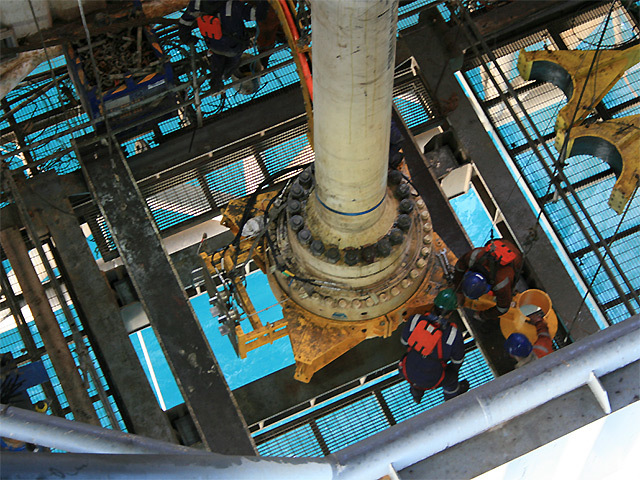
Large oil and gas companies around the world are failing to take basic steps to protect themselves from the financial failure of their suppliers at a time of ruthless cost-cutting, a new survey shows.
One quarter of oil and gas firms said they had experienced disruption to their supply chain during the past year because of financial problems associated with suppliers.
Yet one in four (25%) large firms admitted they did not gather financial reports from their main contractors before issuing a tender or contract, and 41% did not obtain financial information for suppliers lower down the chain before considering them for work.
Nearly one-third of firms (30%) did not have anti-bribery and corruption policies for their main suppliers in advance, and one in five did not have health and safety policies for suppliers beyond the first tier.
Almost one in five (19%) companies said they were not confident they were adequately managing the risks associated with their suppliers.
The market survey was commissioned by Achilles, which manages a network of websites used by the global oil and gas sector to manage supplier information and mitigate risks.
More than 20,000 suppliers have completed online profiles of their business critical information such as compliance, which are then visible to the community of in excess of 300 oil and gas buying organisations.
Research was carried out by independent research consultancy IFF, which conducted telephone interviews with 64 supply chain professionals working at large oil and gas firms across the UK, US and Canada, Spain, Brazil, and the Nordic countries.
Mike Viator, global director of oil and gas at Achilles, said: “Across the globe, oil and gas companies are under pressure to prioritise cutting costs, rather than risks, associated with their suppliers.
“This is a false economy and a short-termist view because, as recent headlines have shown, the cost of doing business with a risky supplier can be astronomical.
“Increasingly, businesses are expected to reveal potential risks in their supply chain out of a duty to consumers and shareholders – such as the Sarbanes-Oxley legislation for public companies in the US.
“This survey suggests that many oil and gas companies are experiencing the financial failure of a supplier, yet not putting in place proper safeguards in terms of due diligence to prevent it from happening again.
“In our experience, oil and gas firms can most effectively tackle risks associated with suppliers when they work collaboratively to apply common standards required of all contractors.
“In a network, businesses can share the administrative burden of collecting, managing and updating business critical information about suppliers.
“With accurate data, buying organisations can proactively manage and mitigate risk.”
Recommended for you
